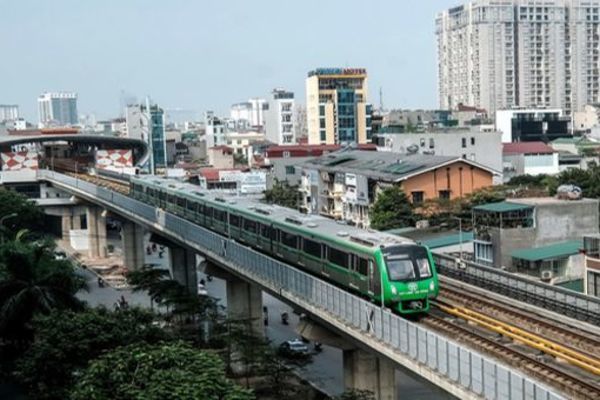 |
|
An elevated section of HCMC’s Ben Thanh–Suoi Tien metro line runs along Hanoi Highway. The Government pointed out that the volatile exchange rate between the Vietnamese dong and the Japanese yen is one of the main reasons for cost overruns in HCMC’s Metro Line No.1 project - PHOTO: VNA
|
Vietnam typically takes out yen loans for projects funded by Japanese official development assistance (ODA). Therefore, any fluctuations of the Japanese currency would have immediate effect on yen loans for Vietnam.
In the report, the Government said that the surge in costs of the city's first metro line, which links Ben Thanh Market in District 1 and Suoi Tien Theme Park in District 9, resulted from price changes for materials and minimum wage hikes in the 2006-2009 period, VnEconomy news site reported.
The higher-than-expected costs were also blamed on the increasing workload to drive the project’s efficiency. In particular, the costs of equipment at stations and of carriages were increased to meet demand. Modern systems were purchased to ensure safety.
The third reason for the cost overruns was the fluctuating rate between the Japanese yen and the Vietnamese dong and backup costs, according to the report.
The total original investment for the project approved in 2007 was some 126 billion yen, or VND17.4 trillion. The recalculated cost soared to 236.6 billion yen, or VND47.3 trillion in 2011. In 2018, the Government reported this figure to the National Assembly.
Currently, the total investment capital for the project is estimated at 229.7 billion yen, or VND47.3 trillion, with 203.1 billion yen, or VND41.8 trillion, coming from yen loans funded by the Japanese Government and some VND5.5 trillion taken from the city’s budget.
To mobilize foreign capital for the project, the Ministry of Finance has signed three agreements to borrow 155.3 billion yen from the Japanese government.
The total disbursement for the project so far amounts to VND15.8 trillion, or 77.8 billion yen, making up 38% of the total ODA loans.
The HCMC government is in the process of completing procedures to have the adjusted plan passed.
Due to delays in site clearance and funding, the city’s first metro line is scheduled to be ready in the fourth quarter of 2021, instead of 2020. SGT

Hanoi’s first metro line begins 20-day trial run
Hanoi's first metro project has started a 20-day trial run before being put into service officially.

Vietnam's Transport Ministry seeks to develop new metro lines
The Ministry of Transport plans to develop 16 new metro line projects in HCMC and Hanoi, though the existing five projects are facing cost overruns and slow execution.
 In a report sent to the NA, the Government pointed out that the volatile exchange rate between the Vietnamese dong and the Japanese yen is one of the main reasons for cost overruns in HCMC’s Metro Line No.1 project.
In a report sent to the NA, the Government pointed out that the volatile exchange rate between the Vietnamese dong and the Japanese yen is one of the main reasons for cost overruns in HCMC’s Metro Line No.1 project.